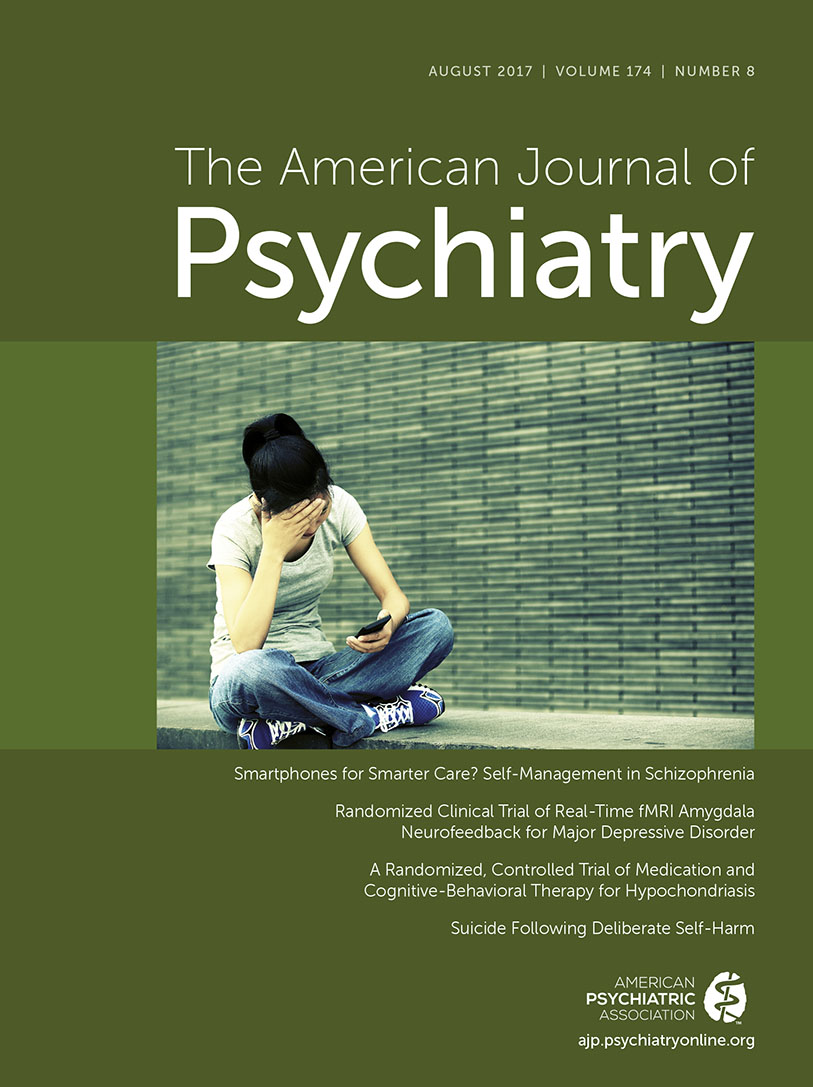Suicidal Behavior During Lithium and Valproate Treatment: A Within-Individual 8-Year Prospective Study of 50,000 Patients With Bipolar Disorder
Abstract
Objective:
Conclusions regarding lithium’s antisuicidal effect for bipolar disorder have been limited due to nonrepresentative subjects and potential confounding factors, including varying severity of illness. Findings regarding the effect of valproate, the most common alternative to lithium, are inconsistent for suicidal behavior. This study investigated the associations of these two drugs with the risk of suicide-related events, and possible differences between drugs, by using within-individual designs in a register-based longitudinal cohort.
Method:
Through linkage of multiple Swedish national registers, 51,535 individuals with bipolar disorder were followed from 2005 to 2013 for treatment with lithium and valproate. Stratified Cox regression was used to estimate the hazard ratios of suicide-related events during treated periods compared with untreated periods. For significant associations between medication and suicide-related events, the population attributable fraction was estimated to assess the public health impact for patients with bipolar disorder.
Results:
During follow-up, 10,648 suicide-related events occurred. The incidence rate was significantly decreased by 14% during lithium treatment (hazard ratio 0.86, 95% confidence interval [CI] 0.78–0.95) but not during valproate treatment (hazard ratio 1.02, 95% CI 0.89–1.15). The difference in hazard ratios of suicide-related events between lithium and valproate was statistically significant. Estimates of the population attributable fraction suggested that 12% (95% CI 4%−20%) of suicide-related events could have been avoided if patients had taken lithium during the entire follow-up.
Conclusions:
The results suggest that lithium should be considered for patients with bipolar disorder with suspected suicidal intentions, although risk for suicide is only one of the considerations when providing clinical care.



